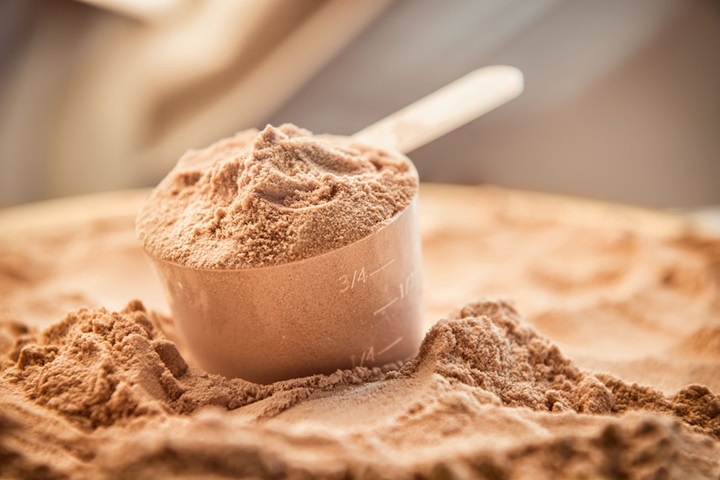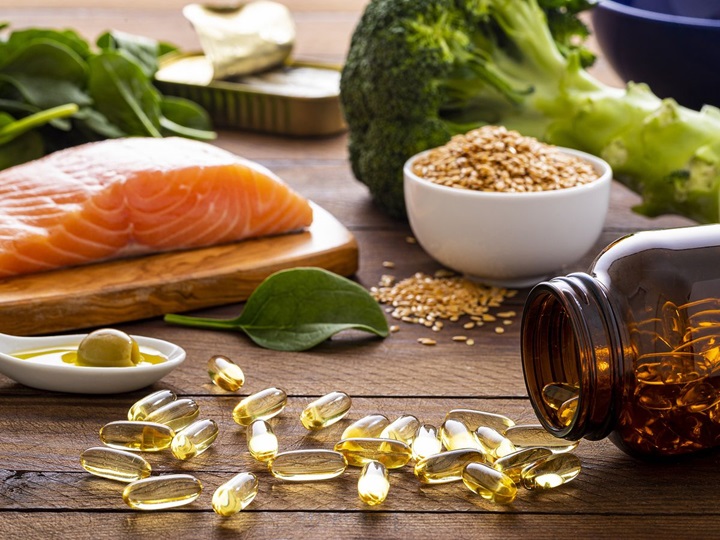Go hard or go home! Have you ever made the decision that this was the week you will try that new diet or fitness routine? You go as hard as you can and write the perfect diet only to be left crawling up the stairs. Why do you feel so tired and sore from just one workout?
You may be missing a key piece to your fitness regimen – sports supplements. These goodies are the ultimate nutrition boost for muscle recovery. Here are the best fitness supplement options to help you kick-start your fitness journey.

Protein Powder
Protein is an essential fitness supplement to build and repair your muscles. While we are pushing it to the limit at the gym, our body uses its stored energy sources. You may be dripping in sweat and feel on top of the world after your home workout but that may change quickly.
Protein powder provides a concentrated source of protein. It is commonly used by athletes, bodybuilders, and individuals looking to increase their protein intake for various reasons, such as muscle growth, recovery, weight management, or general nutritional support. Protein powder is typically made from different protein sources, including whey, casein, soy, pea, rice, or a blend of these sources. Whey protein, derived from milk, is one of the most commonly used and well-studied forms of protein powder.
You should restore your energy quickly after a workout with foods high in protein. Additional supplements such as protein powder can boost recovery and help you feel better faster. You can easily make a great post-workout smoothie with protein powder and enjoy its nutritional value.
Wondering how much protein you need in a day? The average person will only require 0.8 grams per kg of their weight in a day. Take your weight and multiply it by 0.8. So, if you weigh 90 kg x 0.8g/kg = 72 g per day. However, athletes and bodybuilders typically need two to three times more protein than that. So, as you progress on your fitness journey, keep in tune with your body and its needs.
Protein powder can do way more than just repair your muscles. These fitness supplements are incredible boosters of mental alertness as well.
Protein powder offers several benefits:
- Convenient and Quick Absorption: Protein powder is convenient as it can be easily mixed with water, milk, or other liquids to create a quick and portable protein shake. It is also easily digested and absorbed by the body, providing a readily available source of amino acids.
- Muscle Recovery and Growth: Protein is essential for muscle repair and growth. Consuming protein powder after exercise can help replenish amino acid stores and support muscle recovery.
- Protein Supplementation: Some individuals may struggle to meet their daily protein requirements through diet alone, such as those following a vegetarian or vegan diet or those with increased protein needs due to intense physical activity. Protein powder can serve as a convenient and concentrated source of protein to help meet these needs.

BCAA
BCAA stands for Branched-Chain Amino Acids. Amino acids are the building blocks of proteins, and there are 20 different amino acids that are essential for various bodily functions. BCAAs are a specific group of three essential amino acids: leucine, isoleucine, and valine. They are called “branched-chain” amino acids due to their unique molecular structure.
BCAAs are particularly important for muscle protein synthesis and energy production. They are not produced by the body, so they must be obtained from the diet or supplements. BCAAs are commonly found in protein-rich foods such as meat, dairy products, and legumes.
Athletes and fitness enthusiasts often use BCAA supplements to support muscle growth, enhance exercise performance, and reduce exercise-induced muscle damage. BCAAs have been shown to help preserve muscle tissue, decrease muscle soreness, and improve recovery after intense physical activity.

Amino Acids
Amino acids are organic compounds that serve as the building blocks of proteins in living organisms. They are essential for various biological processes and play a crucial role in the structure, function, and regulation of cells, tissues, and organs.
Amino acids can be classified into different groups based on their properties:
- Essential Amino Acids: These are amino acids that cannot be synthesized by the body and must be obtained from the diet. There are nine essential amino acids: histidine, isoleucine, leucine, lysine, methionine, phenylalanine, threonine, tryptophan, and valine.
- Nonessential Amino Acids: These are amino acids that the body can produce on its own from other molecules. There are 11 nonessential amino acids: alanine, arginine, asparagine, aspartic acid, cysteine, glutamic acid, glutamine, glycine, proline, serine, and tyrosine.
- Conditionally Essential Amino Acids: These amino acids are typically nonessential, but under certain conditions, such as illness or stress, they may become essential because the body cannot produce sufficient amounts. Examples include cysteine, tyrosine, and arginine.
Amino acids can be obtained through dietary sources such as meat, fish, eggs, dairy products, legumes, and certain grains. In addition to their role in protein synthesis, amino acids are also used as precursors for various molecules in the body, including neurotransmitters, hormones, and nucleotides.
